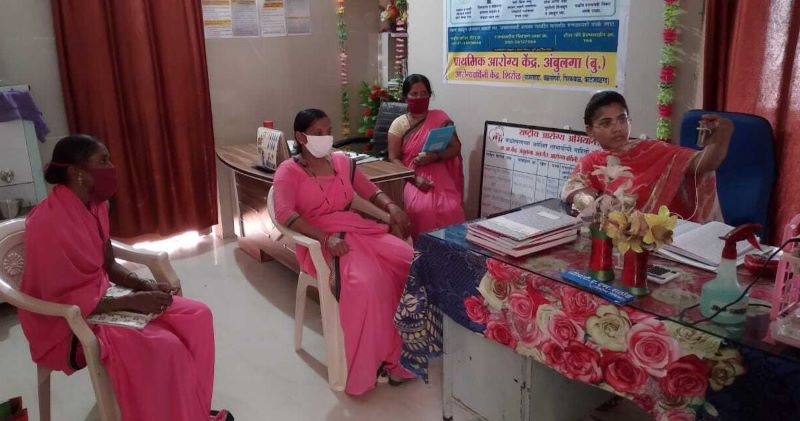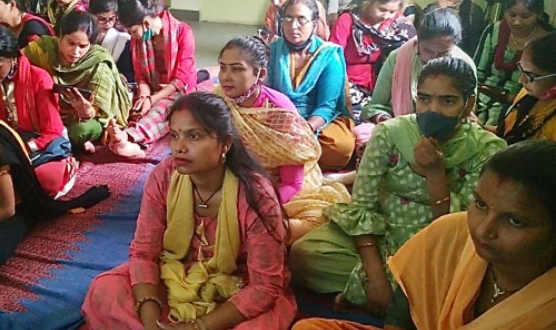“The most vulnerable are the women and children because they don’t have financial freedom to pay for health care, or because they need a husband’s permission to seek medical help,” says Dr. Mahesh Gorla, an assistant professor of pediatrics and a pediatric tuberculosis expert with ECHO India. “They will often not receive health care until things are out of hand. And even if a sick woman or child reaches a nearby health care facility, there is typically not an expert in treating tuberculosis.”
Left untreated, tuberculosis has a 50% mortality rate. India accounts for about 25% of the tuberculosis cases globally. The ECHO Model is what makes a difference for these women and children.
“Now, at these health care facilities all over the country, there is an expert, and there is also outreach to the community for contact tracing, even for people who might not come in for care,” says Dr. Gorla.

Community health workers, called ASHAs, attend a tuberculosis ECHO session. Photo Credit: ECHO India, 2020.
In just three years, ECHO India trained more than 29,000 providers on best practices in tuberculosis treatment — about 60% of the workforce needed to eliminate tuberculosis, according to India’s Ministry of Health. ECHO India is training doctors as well as lab supervisors, field leaders, patient counselors and community health workers.
“You can see how we have to take every case seriously for men, girls [and] women. Each case is so important,” says Dr. Gorla.
Through ECHO sessions, providers and experts pool their knowledge on unique cases, best-practice treatments and cultural considerations in patient care. When Dr. Sumalata Chittiboyina, a tuberculosis epidemiologist with more than 20 years of experience, considered treatment for an 18-month-old boy, she worked closely with an ECHO colleague to decide on a treatment plan and follow-up.
“It is very rare to detect a case in someone that young. And the correct treatment for a pediatric patient is much more specific [in dosing and frequency] than adults,” Dr. Chittiboyina says. Today, the patient is a happy and healthy three-and-a-half-year-old thanks to early detection and comprehensive treatment.
By increasing the number of trained providers, Project ECHO is building pathways so that women and children have a chance to receive the highest quality treatment for tuberculosis, and to thrive.
*Established in 2008, ECHO India is an independent nonprofit trust that supports ECHO partners throughout the country.
For more information about the tuberculosis efforts in India, visit ECHO India’s webpage.
Featured Image: At ECHO sessions, health care workers in the most rural parts of the country have a chance to consult experts on best-practice tuberculosis care. Credit: ECHO India, 2020.


